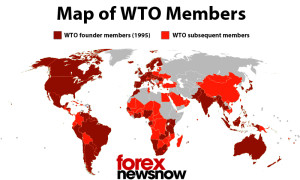Ethiopia expects to join the World Trade Organisation in 2015 without heeding to demands that it liberalises its state-run banking and telecoms sectors, the Foreign Ministry said on Wednesday (July 10).
The Horn of Africa nation applied to join the body in 2003, but its hopes for membership had hinged on Addis Ababa opening those areas to international competition. US officials have publicly asked the country to liberalise both sectors, but Ethiopia says they are “sensitive areas” whose liberalisation may harm national interests.
Its chances, however, were given a lifeline last year when the WTO lowered the bar for the world’s least developed countries to join the global trading club by agreeing new membership standards. The new rules allow members to open fewer sectors, liberalise fewer types of transactions, and only open up their markets as their economies develop.
“Ethiopia’s accession to the WTO is expected to be finalised in the third quarter of 2015,” a Foreign Ministry statement said, quoting Lesanework Zerfu, head of the Trade Ministry’s multilateral trade relations department.
Addis Ababa, with its strongly state-interventionist policies, has one of the world’s fastest-growing economies. The government expects growth of 10 per cent in the fiscal year ending next month, boosted by rising agricultural output and huge public spending. Industry, however, accounts for only about 10 per cent of gross domestic product, while major sectors of the economy, such as banking and telecoms, remain in state hands.
With an 85 million-strong population – making it Africa’s second-most populous – Ethiopia offers an attractive market with cheap labour for foreign investors.
Speaking at a business forum in the Ethiopian capital last month, Prime Minister Hailemariam Desalegn said the telecom sector generated around 6 billion birr (£215 million) a year, which the government uses for railway projects.
Ethiopia plans to build 5,000 km of railway lines by 2020.
“Therefore, the telecoms sector will remain in government hands for years to come,” Hailemariam said.









